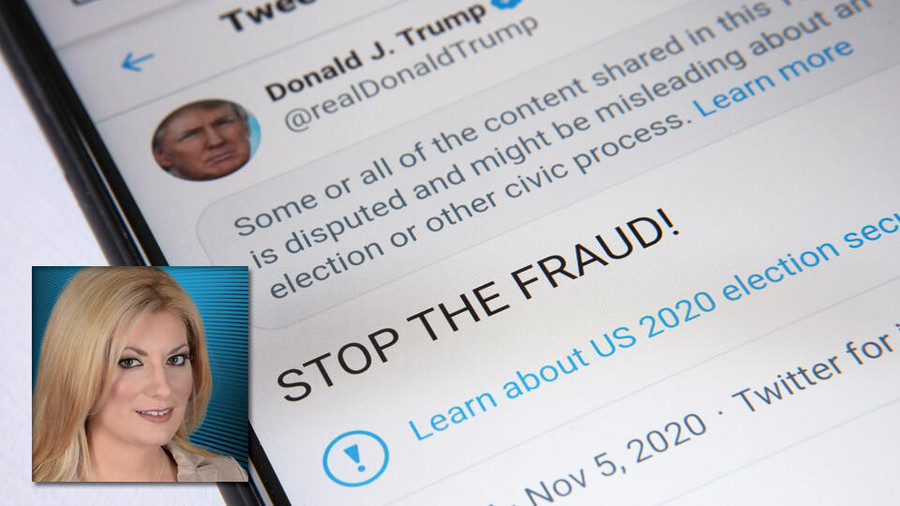Political censorship on social media sites should raise eyebrows of anyone working in adult. We, as an industry, should not support censorship in any way, as censoring some speech (whether we agree with it or not) will likely lead to continuing and worsened censorship of adult industry speech and expression. Instead, supporting education on fact-checking, first amendment rights and independent thought would lead to a better outcome for all.
Section 230 of the Communications Decency Act was written to allow free dissemination of ideas. It relinquishes the liability of website operators of “interactive computer service[s],” such as social media sites, for actions of third-party users on the sites. Section 230 says, in summary, that such a website operator is not to be treated as the publisher or speaker of information shared on the service by a third-party user. Since the website operator is not treated as the publisher or speaker, it is not responsible for certain liabilities caused by third party users.
If it is acceptable for a social media website to remove certain [e.g., political] content because of the nature of the content, then it reinforces their position that they should have the right to remove adult content as well.
Right now, we’re seeing members of government attack that law from both sides of the political aisle. Republicans are alleging that some social media sites are acting as publishers and editorializing, essentially saying that the sites are not the neutral party which the law was meant to protect. Democrats are alleging that misinformation and fake news is allowed to be spread on social media sites without recourse.
Let us take a look at this from each side.
Looking at the issue from the perspective of removing content, on its face, sounds like a reasonable action on the part of website operators to block or remove content they deem false. When you dig deeper though, it is actually a form of censorship not much different from the censorship of sexual expression that the adult industry fights every day.
When website operators remove what they believe to be fake news, users never get to review the material. They never get to make an opinion for themselves on the truth or falsity of the content. Instead, they are sheltered from the viewpoint of the article altogether.
Doesn’t this sound familiar? Facebook and similar companies have been removing adult content for years. Although FOSTA accelerated the pace of this, it is not completely at fault. The censorship existed even prior to passage of FOSTA, but FOSTA made things even worse in causing social media sites to fear new legal liability under the law.
I believe that censorship should not be tolerated by the public, and especially by our industry. It is a slippery slope. If it is acceptable for a social media website to remove certain [e.g., political] content because of the nature of the content, then it reinforces their position that they should have the right to remove adult content as well.
I am not proposing that fake news is a positive thing, by any stretch of the imagination. But I am saying that to combat it, rather than invest in censorship, investment should be made into teaching people how to research and review articles and information to make their own conclusions on the truth or falsity of a particular story.
Now, let’s turn our focus to the side of the issue where problematic fake news can spread virally if left unchecked. If people are able to discern false content because they are educated on how to detect it, then they will be much less likely to share it. And, the outcome is likely that fake news will not spread very far, if at all.
Education on fact-checking, first amendment rights and independent thought will, accordingly, help prevent imposed censorship. While weakening Section 230 as a result of political issues is dangerous, unmitigated censorship of today's "public square" by unelected and faceless Big Tech employees needs to be addressed meaningfully. Fight for the continued existence of Section 230, but also against censorship, regardless of your political views.
Disclaimer: The content of this article constitutes general information, and is not legal advice. If you would like legal advice from Maxine Lynn, an attorney-client relationship must be formed by signing a letter of engagement with her law firm. To inquire, visit Sextech.Lawyer.
Maxine Lynn is an intellectual property (IP) attorney with the law firm of Keohane & D’Alessandro, PLLC. She focuses her practice on prosecution of patents for sex technology, trademarks for adult business brands and copyrights for porn and other creative materials. Through her company, Unzipped Media, Inc., she publishes the Unzipped: Sex, Tech & the Law blog and the Sex Tech Patent IndeXXX bulletin at SexTechLaw.com.








